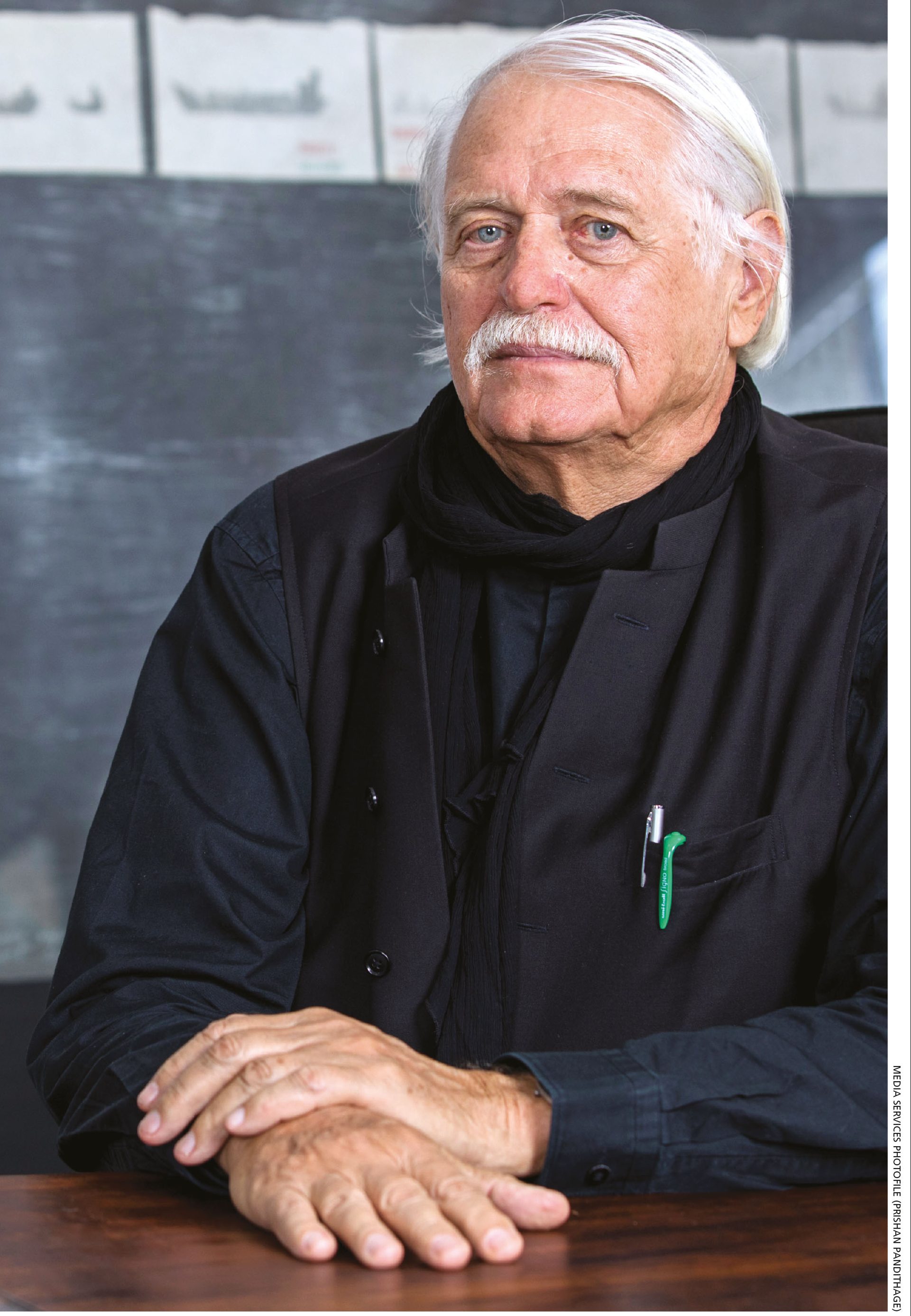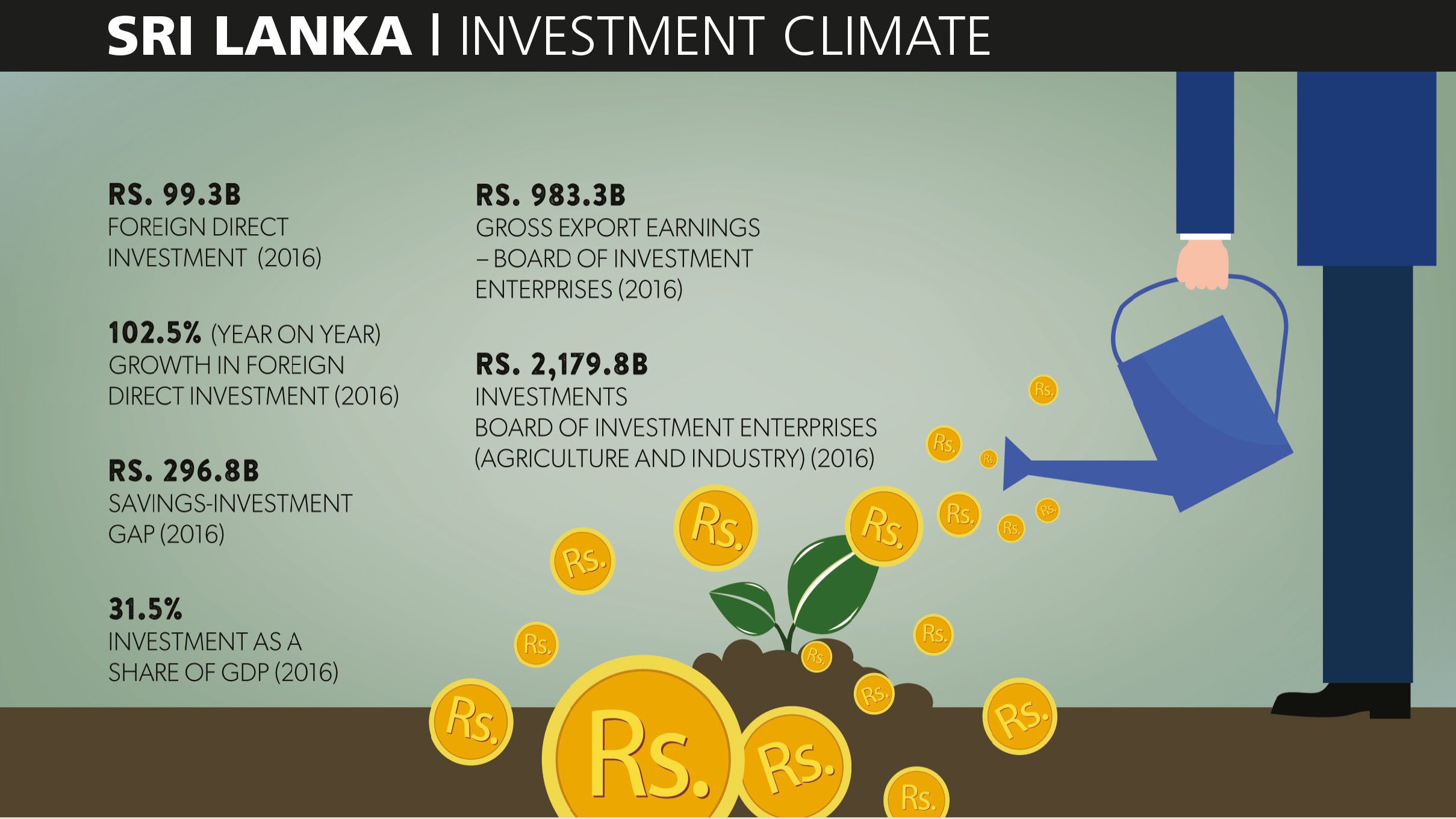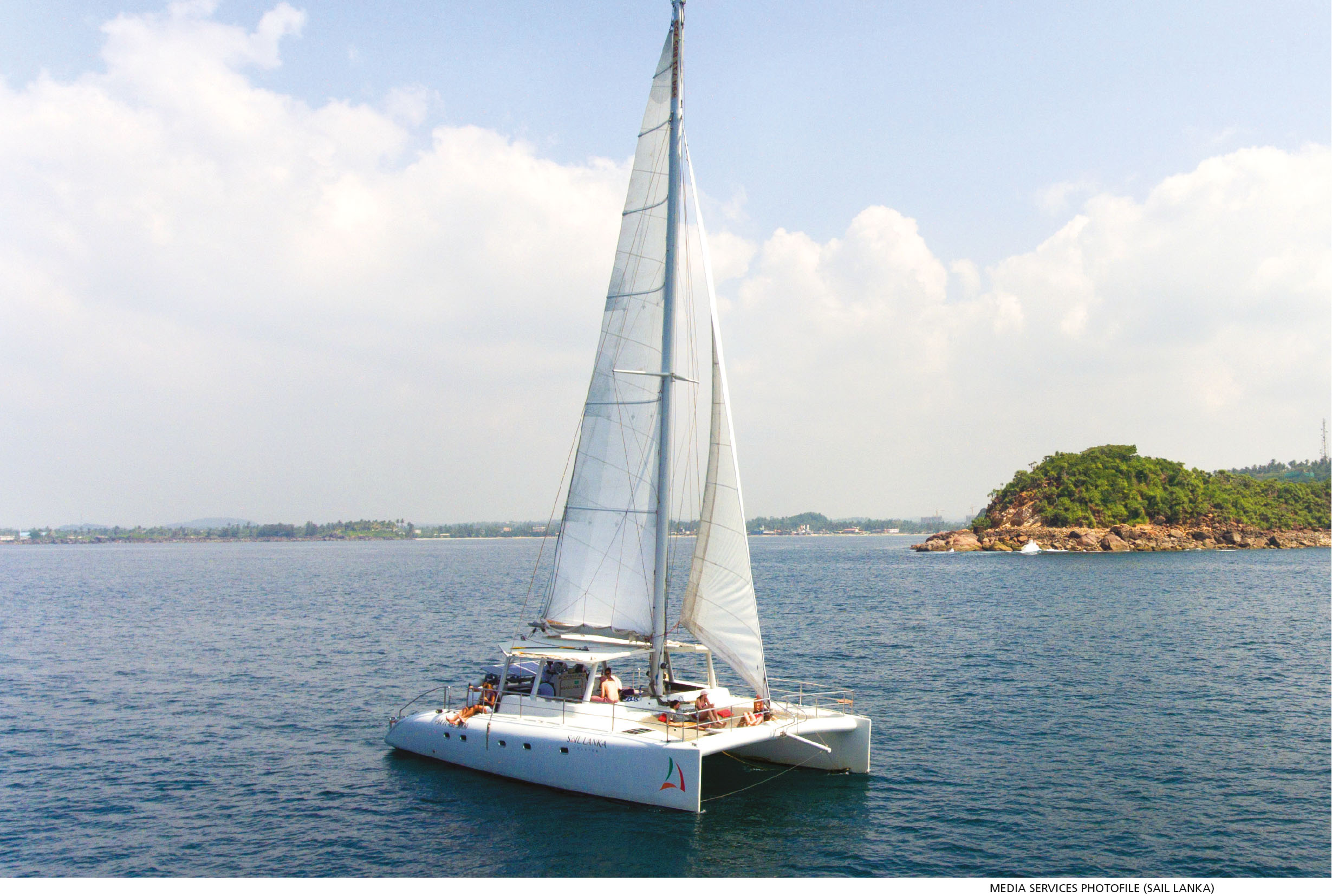FDI STAKES
Compiled by Yamini Sequeira
DUMP THE SILO MENTALITY
Pierre Pringiers urges administrators to steer the ship away from rigidity

Sri Lanka is ranked 111th among 190 economies when it comes to the ease of doing business, according to the World Bank’s latest annual ratings – the island slipped by one spot from the previous year.
Although this may not leave too much to celebrate, it is heartening to know that many foreign investors – including one who has been here in Sri Lanka for almost four decades – still call Sri Lanka ‘an investor’s haven.’
HAVEN FOR INVESTORS The Chairman of Sail Lanka and Camso Loadstar Pierre Pringiers set foot in Sri Lanka as the manager of a company producing solid tyres way back in 1980. Perceiving rich potential in the tiny island, he soon turned investor and established the solid tyre business in this country.
Today, Sri Lanka is the No. 1 exporter of solid tyres in the world while Pringiers has built his company into a billion dollar business with green shoots being nourished in Sri Lanka and then expanded across the world.
Looking back at the time his love affair with Sri Lanka took root, he recalls: “The investment climate in the 1980s was great thanks to generous tax holidays and minimum investment requirements; in fact, it was a great climate for SME and startup businesses. However, conditions today are not that easy since the government is focussed on large-scale initial investments.”

He explains: “Back then, the minimum investment mandated for a foreign investor was much less. Today, governments are looking for foreign direct investments (FDIs) of large sums. I feel that may not be a good thing because large amounts may come in but might flow out a month later to import machinery and equipment.”
“What the government should look at is investment in terms of the potential for consistent revenue, foreign exchange and employment to benefit the country,” Pringiers stresses.

INVESTMENT CLIMATE In his meetings and discussions with government officials, Pringiers says he doesn’t hold back his pro-SME views. “I’ve been fighting for SME development for a while,” he reveals.
He remarks: “If you look at economies in Europe, 80 percent of their GDP is made up of SMEs. Sri Lanka was attracting this segment easily but today, SMEs cannot afford to come here because the minimum investment of US$ 500,000 is a large sum even for European businesses.”

However, he avers that “the investment climate is currently good – the government and ministers are pro-business and investor friendly. The problem lies in the implementation aspect.”
Pringiers adds: “Four decades ago, investments entering Asian countries were factory relocations from the West. Now that trend is over, and the likes of [Presidents] Trump and Macron frown upon offshore operations. In fact, some multinationals are reversing their relocations.”
“The government should invite companies that offer fair trade and that add value to local resources – such as turning rubber into tyres. Real estate is yet another sector that is ripe for investment,” he declares.
RUBBER PROSPECTS But he states that although the rubber industry has grown steadily, there are further opportunities for expansion. At the end of the day, natural rubber could be an attraction for investors in the interim. But the industry should diversify its DNA from natural rubber manufacturing and adapt to the fact that many rubber based products use synthetic rubber.
Pringiers notes that the rubber plantations are not as efficient as they could be due to the cyclical nature of the commodity – meaning, when prices decline, rubber tapping is halted; and rubber is replaced with higher yielding palm oil plantations.
DRIVING EFFICIENCY Sounding a cautionary note, he asserts that “the country needs to step out of the silo system currently in place at the Board of Investment (BOI) and ministries. The government should support investors to maximise opportunities as long as they’re paying taxes and equal opportunities are offered to local enterprises in the same sectors.”
He also feels that “the BOI is too rigid. I am critical because its rules of engagement were written 40 years ago but today’s economic realities are different. The BOI has achieved a lot but has much more to do if investors are to flock to Sri Lanka.” Furthermore, he points out that multiple licences and permits are needed to get anything done and as a result, the main stumbling block for investors is the time it takes to get a project underway.
“There’s a great opportunity for investors in Sri Lanka because there has been a vacuum in the investment milieu. To attract investment, Sri Lanka should not harp on export oriented businesses alone but companies that plant local roots or even engage in import substitution,” he opines.
THE BLUE ECONOMY Looking further afield, Pringiers comments: “I consider Sri Lanka’s blue skies and blue oceans as powerful natural resources. These sectors have immense potential to attract high spending tourists to Sri Lanka.”

“I recognised the potential and embarked on exploring business development in yacht and boat building operations, and facilitating whale watching. This has generated employment and skills for local communities, which is what foreign investments should do. Today, we have pioneered boat and yacht building, and charters by training youngsters in the required skills. Sri Lanka now boasts a mature boat building sector in the south,” he points out.
If the proposed marina in Galle is developed, it would boost local yacht building and ownership in Sri Lanka, and turn the island’s shores into South Asia’s yachting centrepiece – and part of the yachting belt stretching across two oceans from Abu Dhabi over Oman, Goa, the Maldives and Sri Lanka, and further up to Southeast Asia.
“I was informed that the private sector and foreign investors with funding and expertise in this sector would be invited to bid very soon to accelerate the development of this marina,” Pringiers adds.
Commenting on what pleases him about this country, he says: “Sri Lanka is home to a remarkable number of wildlife parks for a country its size. Now Sri Lanka has also become a whale watching paradise. Truly, Sri Lanka is an island blessed by the gods!”



